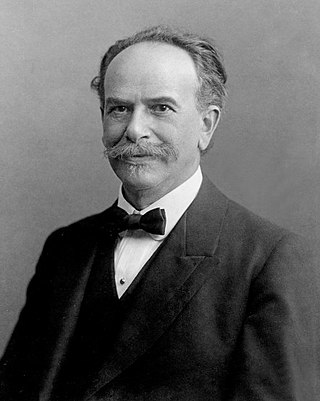
Anthropology is the scientific study of humanity, concerned with human behavior, human biology, cultures, societies, and linguistics, in both the present and past, including past human species. Social anthropology studies patterns of behavior, while cultural anthropology studies cultural meaning, including norms and values. A portmanteau term sociocultural anthropology is commonly used today. Linguistic anthropology studies how language influences social life. Biological or physical anthropology studies the biological development of humans.

The American Anthropological Association (AAA) is an organization of scholars and practitioners in the field of anthropology. With 10,000 members, the association, based in Arlington, Virginia, includes archaeologists, cultural anthropologists, biological anthropologists, linguistic anthropologists, linguists, medical anthropologists and applied anthropologists in universities and colleges, research institutions, government agencies, museums, corporations and non-profits throughout the world. The AAA publishes more than 20 peer-reviewed scholarly journals, available in print and online through AnthroSource. The AAA was founded in 1902.
Cultural history records and interprets past events involving human beings through the social, cultural, and political milieu of or relating to the arts and manners that a group favors. Jacob Burckhardt (1818–1897) helped found cultural history as a discipline. Cultural history studies and interprets the record of human societies by denoting the various distinctive ways of living built up by a group of people under consideration. Cultural history involves the aggregate of past cultural activity, such as ceremony, class in practices, and the interaction with locales.It combines the approaches of anthropology and history to examine popular cultural traditions and cultural interpretations of historical experience.

Boasian anthropology was a school within American anthropology founded by Franz Boas in the late 19th century.
History of anthropology in this article refers primarily to the 18th- and 19th-century precursors of modern anthropology. The term anthropology itself, innovated as a Neo-Latin scientific word during the Renaissance, has always meant "the study of man". The topics to be included and the terminology have varied historically. At present they are more elaborate than they were during the development of anthropology. For a presentation of modern social and cultural anthropology as they have developed in Britain, France, and North America since approximately 1900, see the relevant sections under Anthropology.
The American Ethnological Society (AES) is the oldest professional anthropological association in the United States.

Anthrozoology, also known as human–nonhuman-animal studies (HAS), is the subset of ethnobiology that deals with interactions between humans and other animals. It is an interdisciplinary field that overlaps with other disciplines including anthropology, ethnology, medicine, psychology, social work, veterinary medicine, and zoology. A major focus of anthrozoologic research is the quantifying of the positive effects of human–animal relationships on either party and the study of their interactions. It includes scholars from fields such as anthropology, sociology, biology, history and philosophy.
Ethnohistory is the study of cultures and indigenous peoples customs by examining historical records as well as other sources of information on their lives and history. It is also the study of the history of various ethnic groups that may or may not still exist. The term is most commonly used in writing about the history of the Americas.
The Society for Applied Anthropology (SfAA) is a worldwide organization for the Applied Social Sciences, established "to promote the integration of anthropological perspectives and methods in solving human problems throughout the world; to advocate for fair and just public policy based upon sound research; to promote public recognition of anthropology as a profession; and to support the continuing professionalization of the field." Members include academic as well as practicing and applied anthropologists. The Society is unique among professional associations in membership and purpose – and in representing the interests of professionals in a wide range of settings including academia, business, law, public health, medicine, environment, and government. The unifying factor is a commitment to making an impact on the quality of life in the world. The Society publishes two journals: Human Organization and Practicing Anthropology. The SfAA was founded in 1941 and has maintained its status as an important resource for practicing and academic anthropologists alike.
Michael Silverstein was an American linguist. He was the Charles F. Grey Distinguished Service Professor of anthropology, linguistics, and psychology at the University of Chicago. He was a theoretician of semiotics and linguistic anthropology. Over the course of his career he created an original synthesis of research on the semiotics of communication, the sociology of interaction, Russian formalist literary theory, linguistic pragmatics, sociolinguistics, early anthropological linguistics and structuralist grammatical theory, together with his own theoretical contributions, yielding a comprehensive account of the semiotics of human communication and its relation to culture. He presented the developing results of this project annually from 1970 until his death in a course entitled "Language in Culture". Among other achievements, he was instrumental in introducing the semiotic terminology of Charles Sanders Peirce, including especially the notion of indexicality, into the linguistic and anthropological literature; with coining the terms metapragmatics and metasemantics in drawing attention to the central importance of metasemiotic phenomena for any understanding of language or social life; and with introducing language ideology as a field of study. His works are noted for their terminological complexity and technical difficulty.

The Omohundro Institute of Early American History and Culture (OI) is an independent research organization located in Williamsburg, Virginia, sponsored by William & Mary and Colonial Williamsburg. Founded in 1943, the OI supports the scholars and scholarship of vast early America—a term used to describe the capacious histories of North America and related geographies, including foundational histories of indigenous peoples, the scale and impact of transatlantic slavery, and multidimensional European colonization and settlement, from the 1450s to the 1820s.
Regna Darnell is an American-Canadian anthropologist and professor of Anthropology and First Nations Studies at the University of Western Ontario, where she has founded the First Nations Studies Program.
Michael Eugene Harkin is one of the leading anthropologists in the United States specializing in the ethnohistory of indigenous people of the western U.S. and Canada. He is currently professor and former chair of anthropology at the University of Wyoming, having previously taught at Emory University and Montana State University. In 2011 he was Fulbright Distinguished Chair in Cultural Studies at the Karl-Franzens University in Graz, Austria, and in 2007 he was a visiting professor at Shanghai University.
Nancy Oestreich Lurie was an American anthropologist who specialized in the study of North American Indian history and culture. Lurie's research specialties were ethnohistory, action anthropology and museology; her areal focus was on North American Indians, especially the Ho-Chunk and the Dogrib (Tlicho) of the Canadian NWT; and the comparative study of territorial minorities.

Charles Melvin Hudson Jr. (1932–2013) was an anthropologist, a professor of anthropology and history at the University of Georgia. He was a leading scholar on the history and culture of Indigenous peoples of the Southeastern Woodlands of the present-day United States. He is known for his book mapping the expedition of Spanish explorer Hernando de Soto in the mid-16th century in the Southeast, based on both the expedition's records and sites identified through archeology and anthropology.
Erminie Wheeler-Voegelin was an American award-winning anthropologist, folklorist, and ethnohistorian.
Social anthropology is the study of patterns of behaviour in human societies and cultures. It is the dominant constituent of anthropology throughout the United Kingdom and much of Europe, where it is distinguished from cultural anthropology. In the United States, social anthropology is commonly subsumed within cultural anthropology or sociocultural anthropology.
Bjørn Thomassen is an anthropologist and social scientist. He is associate professor at Roskilde University in the Department of Society and Globalisation. From 2003-2012 he worked at The American University of Rome, where he was chair of the department of International Relations.
Historical anthropology is a historiographical movement which applies methodologies and objectives from social and cultural anthropology to the study of historical societies. Like most such movements, it is understood in different ways by different scholars, and to some may be synonymous with the history of mentalities, cultural history, ethnohistory, microhistory, history from below or Alltagsgeschichte. Anthropologists whose work has been particularly inspirational to historical anthropology include Emile Durkheim, Clifford Geertz, Arnold van Gennep, Jack Goody, Lucien Lévy-Bruhl, Marcel Mauss and Victor Turner.





